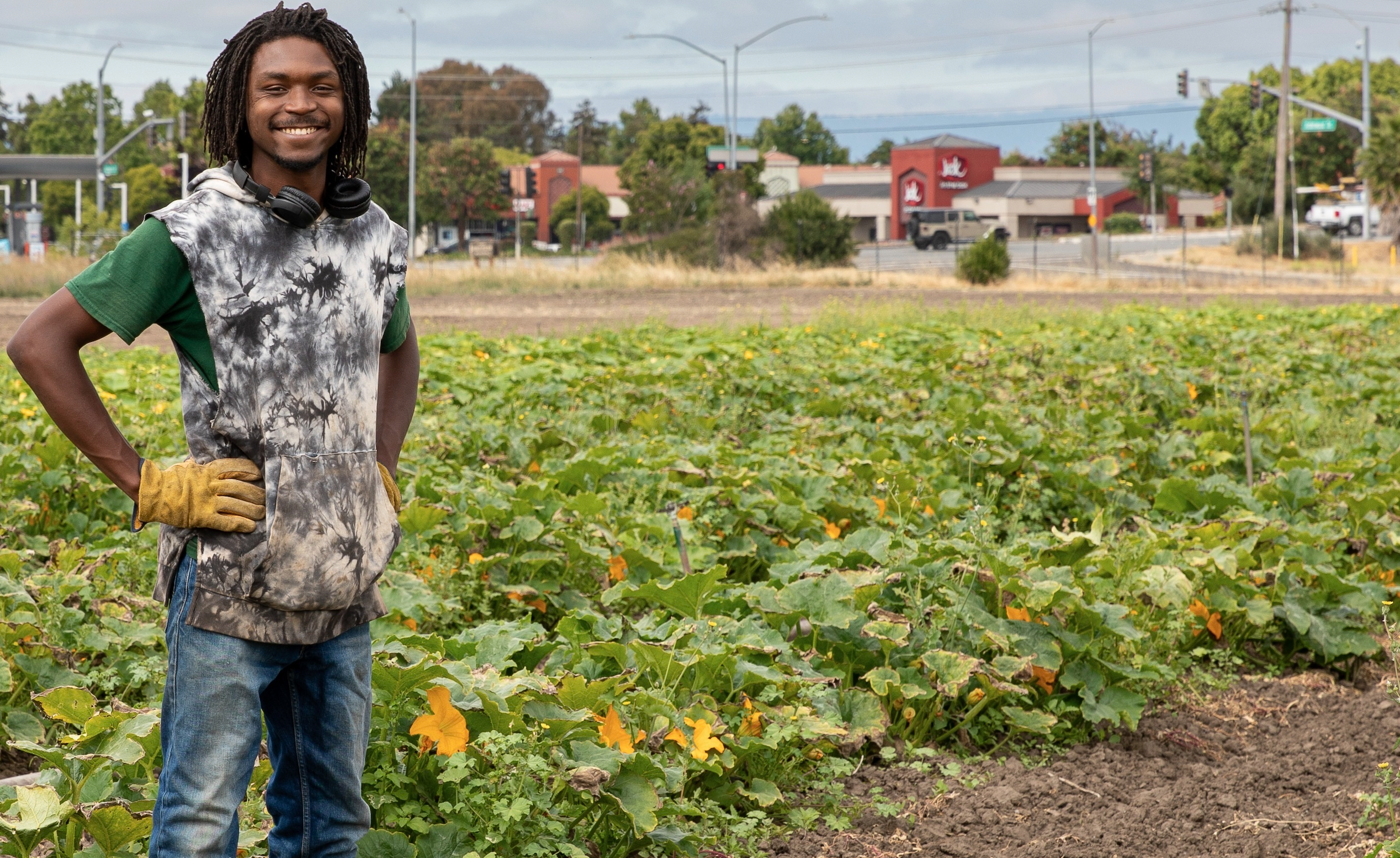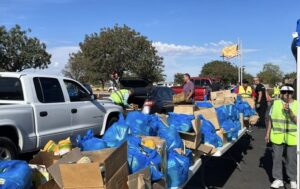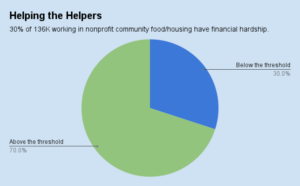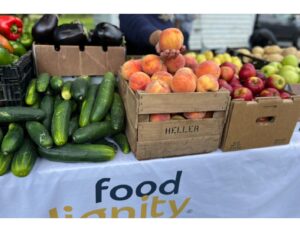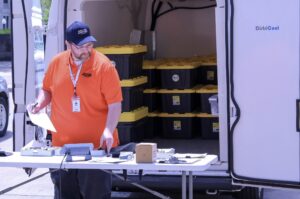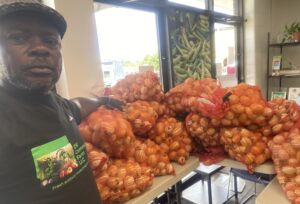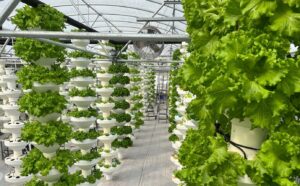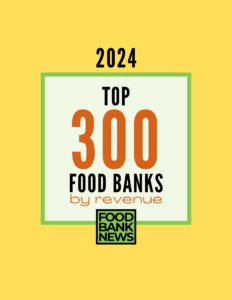It’s one thing for a food bank to say it’s going to get involved in the food justice movement. It’s another to actually do it.
Alameda County Community Food Bank made a definitive move into food justice when it agreed to invest between $2 million and $2.5 million per year into a local BIPOC-led farm that grows and distributes organic produce. The food bank will act as fiscal sponsor for the non-profit Dig Deep Farms for the next two years, with the option to remain so for a third year if needed. During that time, the food bank will work to strengthen the operations of the farm with the goal of eventually spinning it off to to become its own independent non-profit.
The initiative comes at a time when food banks are more aware than ever of the need to take on systemic inequalities in the food system. (Second Harvest Heartland, for example, is making a $13.2 million investment in racial equity.) Supporting food justice can take a variety of forms, and one of the issues Alameda County Community Food Bank faced was figuring out which path was the right one.
“A big question we had was, ‘Is this the right type of investment?’” said Regi Young, CEO.
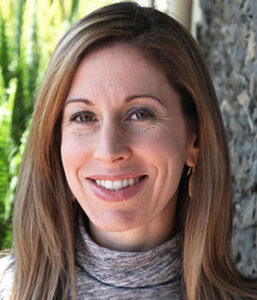
The food bank was already directing the bulk of its produce-purchasing budget toward BIPOC farms (see more here), and it was looking to have even more of an impact on the community. One idea that emerged through its strategic planning process was becoming a food justice incubator, said Allison Pratt, Chief of Partnerships and Strategy.
Around this time, the food bank was approached by multiple Alameda County stakeholders about the prospect of absorbing Dig Deep Farms’ operations, which were being run by a division of the county. “It’s rare that opportunities like this come our way, especially ones that are so aligned with the trajectory of the organization,” Pratt said.
Even so, the food bank spent six months conducting due diligence on the farm, focusing on its financials, organizational structure, and assets and liabilities. Young noted that the food bank would be pulling from its reserves in order to afford the initiative and that it risked getting heavily involved with the group before having enough time to fully assess its potential growth and sustainability.
In its deliberations about the farm, the food bank determined it did not want to run its own farm, and needed to stick to its strengths. “We’re not experts in farming, but we are experts in running a nonprofit organization and we can cultivate their ability to run an effective nonprofit,” Young said.
Ceding the farmwork versus acquiring the farm outright was one way in which the food bank applied a food justice lens to its decision, Young said. “We wanted to support their efforts to become an independent farm that we could benefit from,” he said. “That’s a way in which we approached this from more of a food justice frame.”
The food bank also saw benefits due to the farm’s involvement in Food is Medicine. Alameda County Community Food Bank is one of a small number of food banks that have advanced far enough in Food is Medicine to receive reimbursements from insurers for providing healthy food to patients (see more here). Dig Deep Farms, meanwhile, is a main supplier of nutritious food to a county-led Food is Medicine initiative called Recipe4Health.

One of the food bank’s Food is Medicine goals is to source more produce for its healthy food boxes from BIPOC farmers, Young said. The relationship with Dig Deep Farms will help it achieve that goal, while also providing a sustainable revenue stream for the farm, he said. “From our perspective, the reimbursement rates are a good way to put more resources into those farms,” Young said, noting that Alameda County is one of the highest cost places in the nation to run a farm.
As it happened, Dig Deep Farms’ involvement with Recipe4Health was drawing it into plenty of non-farm activities, like having to reach out to potential patients, mapping out deliveries and capturing programming data. The food bank can now incorporate those activities to its own Food is Medicine workflows, allowing Dig Deep Farms to focus exclusively on farming.
Alameda County Community Food Bank assumed the lease agreements of two farm sites – one of 53 acres and another of ten acres – on July 1, and will provide logistics, human resources and financial support to the 18 farmers currently cultivating the land.
Looking forward, the food bank sees the relationship with Dig Deep Farms as a way to prove the ability of BIPOC farms to support Food is Medicine initiatives and improve the overall health of the local community. From there, it would like to collaborate with other food banks in the region to incubate other farms and/or food-system organizations.
“The reality is we’re not going to be able to end food insecurity in Alameda County as a food bank. We’re going to have to do that collectively as a community,” Young said. “Being able to identify and strengthen that network of organizations that are committed to the same goals that we are is going to be the biggest opportunity that can come from this.” – Chris Costanzo
PHOTO, TOP: Kenny Russell is one of the farmers at Dig Deep Farms, which is now being fiscally sponsored by Alameda County Community Food Bank.
Like what you’re reading?
Support Food Bank News
